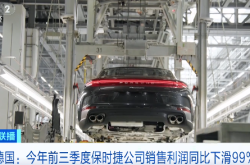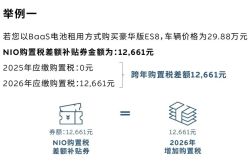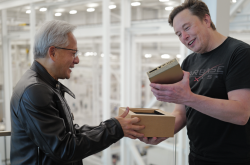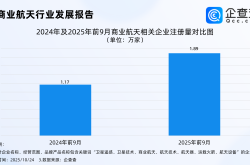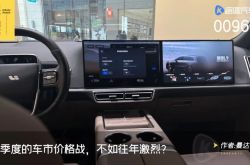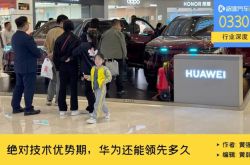Yu Hao, Much "Crazier" than Lei Jun
![]() 10/27 2025
10/27 2025
![]() 564
564
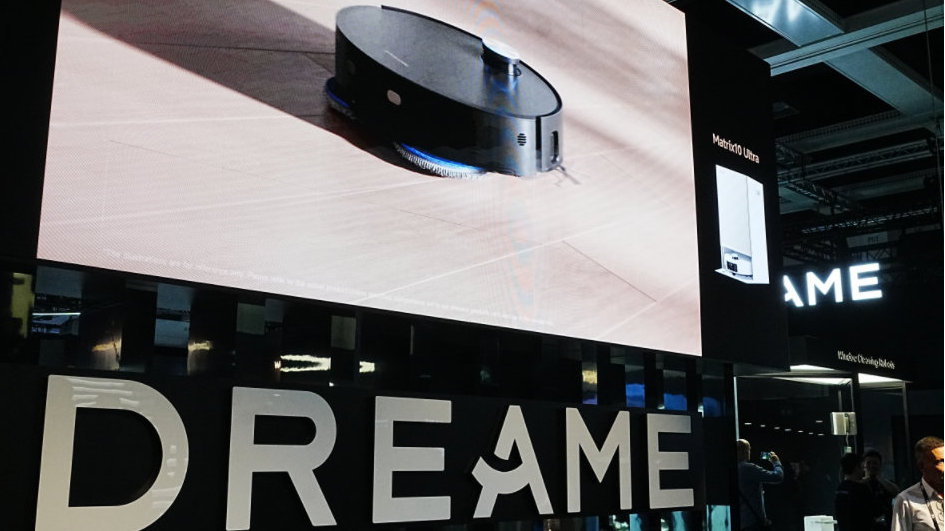
Introduction: Can Dreame's Strength Support Yu Hao's Ambitions?
Years later, when people look back at 2025, they may find that the most ambitious entrepreneur of that year was not Liu Qiangdong, who delivered takeout, nor Lei Jun, who gave his annual speech, but Yu Hao, the founder of Dreame Technology.
Under the leadership of this Tsinghua University alumnus, Dreame, initially a robotic vacuum cleaner maker, has expanded its business to a wide range of categories including major home appliances, smartphones, smart cars, smart kitchen appliances, and outdoor smart equipment.
Among these cross-industry moves, car manufacturing is undoubtedly the most challenging.
Recently, veteran automotive reviewer @Hanlu posted on Weibo a set of spy photos of a new car's exterior. Netizens speculated that it might be Dreame's new car, with its Bentley Bentayga-like design drawing widespread attention.
On August 28, 2025, Dreame officially announced its entry into car manufacturing.
Its first model is positioned as an ultra-luxury pure electric vehicle, competing with the Bugatti Veyron, with plans for mass production by 2027.
The second model is positioned as an ultra-luxury flagship SUV, with a design similar to the Rolls-Royce Cullinan.
Now, the third new model is suspected of resembling the Bentley Bentayga.
From Bugatti to Bentley, Dreame's luxury car design route has sparked much jest: Is it planning to "replicate" all top-tier luxury cars?
It is well known that crossing over into car manufacturing is not easy, and doing so for luxury cars is even harder.
LeTV and Evergrande faced setbacks earlier, and Dong Mingzhu also stumbled. Apart from Xiaomi, there are few successful cases in this field.
Even Apple, which secretly developed an electric vehicle project (codenamed "Project Titan") starting in 2014, failed to launch a mass-produced model after nearly a decade and ultimately announced the project's termination in 2024.
In this arena where many giants have fallen, will Yu Hao become the next Elon Musk or just another Jia Yueting?
I. Is Dreame Aiming to Be the Next Zotye?
Dreame's plan to manufacture cars can be traced back to early this year.
According to the Tianyancha app, Dreame's car manufacturing entity, "Starry Sky Project (Shanghai) Automotive Technology Co., Ltd.," was registered in January 2025 with a registered capital of 1 billion yuan.
Yu Hao, the founder of Dreame Technology, actually controls 80% of the equity in Starry Sky Project through a multi-tiered shareholding structure.

According to the Economic Observer, Dreame plans to build its car factory near Tesla's German plant, with an area expected to be 1.2 times that of Tesla's Berlin factory.
With products competing with top-tier luxury cars and a factory adjacent to Tesla, Dreame's ambitions are undeniably grand.
However, to turn these ambitions into reality, Dreame may face numerous challenges.
From a design perspective, Dreame is not the first player to take a luxury car benchmarking approach.
Zotye Auto, founded in 1998, once gained notoriety for its ability to "pay homage" to big-name products, earning it the nickname "Porsche for the people" among consumers.
It is said that Zotye Auto had a mysterious department called the "Tape Measure Department," where staff could create cars remarkably similar to luxury models just by measuring them with a tape measure.
Starting in 2008, Zotye Auto successively launched models such as the Zotye SR9, which resembled the Porsche Macan, the Zotye SR7, similar to the Audi Q3, the Zotye T600, akin to the Volkswagen Touareg, and the Zotye Z700, reminiscent of the Audi A6L, all of which were nearly indistinguishable from their luxury counterparts in appearance.
However, while Zotye could mimic the "face" of luxury cars, it failed to replicate their "essence."
Due to a lack of core technologies in key components, Zotye Auto frequently encountered quality issues, with complaints flooding in.
As the gap in product strength between Zotye and mainstream competitors widened, Zotye Auto rapidly declined.
According to the Beijing News, Zotye Auto produced no complete vehicles in 2024 and sold only 14 units, now facing a survival crisis.
This case serves as a stark warning: if Dreame also becomes obsessed with benchmarking in its car manufacturing endeavors, it may well become the next Zotye Auto.
Of course, compared to Zotye Auto, Dreame can leverage its technological accumulate (Jīlěi, accumulation) in the robotics field.
Yu Hao once wrote in a Weibo post that in the era of artificial intelligence, a robotic vacuum cleaner and a car have far more in common than meets the eye.
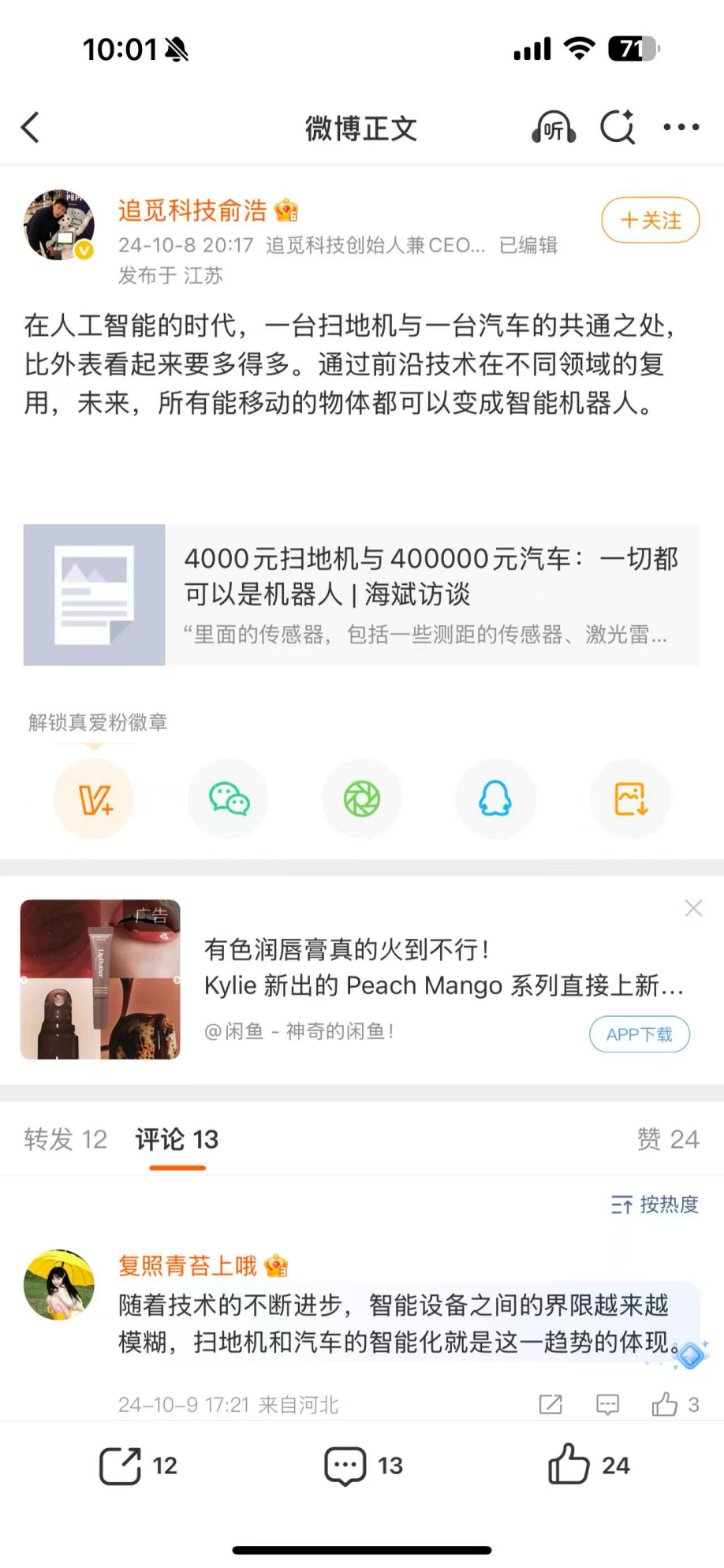
While this statement holds some truth, it remains largely theoretical for now.
In reality, robotic vacuum cleaners primarily operate indoors at a constant temperature, whereas smart cars must brave the elements, facing complex road and weather conditions.
In terms of fault tolerance, consumers are obviously more forgiving of a 3,000-yuan robot than a 300,000-yuan car.
Moreover, in the current new energy vehicle industry, autonomous driving technology is still in its infancy, and the range shortcoming (Duǎnbǎn, shortcoming) remains a pressing issue that requires ongoing research and development.
Research and development mean burning money. William Li, the founder of NIO, once stated that the entry threshold for the new energy vehicle industry is 40 billion yuan. In contrast, Dreame's total revenue for 2024 was only 15 billion yuan.
This significant funding gap has led to widespread doubts about Dreame's car manufacturing plans.
To alleviate funding issues, Dreame appears to be adopting a "left and right hand model" strategy. According to the Jinan Times, the "left hand" represents its original design manufacturing (ODM) business, while the "right hand" represents its self-developed car manufacturing project. Yu Hao hopes to use the "left hand" business to support the "right hand" business.
After all, car manufacturing is just one of Dreame's many cross-industry projects, and its limited resources must also be allocated to other businesses such as home appliances, smartphones, and planetary exploration.
Furthermore, Dreame Cars' high-end positioning adds another layer of difficulty to its actual implementation.
On one hand, pure electric vehicles face inherent challenges in the high-end market. Cost-conscious users may sacrifice range for intelligent driving experiences, but high-end users demand a stable, compromise-free driving experience.
On the other hand, brand barriers present a formidable obstacle for Dreame. The core of the ultra-luxury car market is brand identity, which requires a strong brand heritage and user perception.
A Swiss watch costing tens of thousands of yuan may not be significantly more accurate than a Japanese watch costing several thousand yuan. Similarly, a T-shirt made of the same cotton and cut can vary drastically in price depending on whether it bears the Saint Laurent or Uniqlo label.
You may argue that a Saint Laurent T-shirt costing over 4,000 yuan is overpriced, but establishing market-recognized value for the Saint Laurent brand is no easier than developing smartphone technology.
As a newcomer, Dreame lacks both a broad consumer base and a compelling brand story, making it nearly impossible to establish brand premium comparable to that of century-old brands in the short term.
Essentially, the competition in the new energy vehicle market has entered a phase of elimination and consolidation, marked by intense internal competition. The high-end pure electric vehicle segment is even smaller and more barrier (Bìlěi, barrier)-ridden, making it difficult for newcomers to gain a foothold.
Crossing over is meant to seek growth, but Dreame's plunge into this red ocean is akin to snatching crumbs from a tiger's mouth.
While Yu Hao appears optimistic about car manufacturing, questions remain about its future prospects.
II. Is Yu Hao Following in Lei Jun's Footsteps?
There may be two reasons behind Dreame's insistence on crossing over.
The first is growth anxiety.
According to the Dazhong Daily, the Chinese cleaning appliance market formed a "two superpowers and many strong players" pattern (Géjú, landscape) in the first half of 2025.
Roborock Technology held a 32.76% share in online sales of robotic vacuum cleaners, while Ecovacs maintained over 25%, with both expanding steadily overseas.
In contrast, Dreame Technology's online retail share slipped to 7.5%, a significant year-on-year decline of 45.27%, indicating clear growth pressure.
Secondly, Dreame may have been inspired by Xiaomi's successful crossover.
Public information shows that Dreame, founded in 2017, was once part of Xiaomi's ecosystem, responsible for original design manufacturing (ODM) for Xiaomi. At the capital level, Xiaomi has participated in multiple rounds of financing for Dreame and remains an important shareholder.
Some media have commented that Yu Hao's crossover moves are akin to following in Lei Jun's footsteps.
Compared to Lei Jun, Yu Hao's crossovers are more aggressive and thorough.
Xiaomi has an "human-car-home" ecosystem, while Dreame aims for a "human-car-home-space-universe" ecosystem.
Besides smartphones, smart cars, and major home appliances, Dreame has also announced plans to venture into astronomical telescopes and planetary exploration.
According to CNR, Dreame's first smartphone, the Dreame Space, is positioned as a high-end flagship model. According to Dreame's own promotional materials, this phone boasts "astronomical-level photography."
While BYD and NIO, XPENG, and Li Auto have been competing fiercely for years, none have planned to build a factory next to Tesla's. Similarly, among the major smartphone brands (Huawei, Xiaomi, OPPO, Vivo), none have dared to claim "astronomical-level photography."
As a newcomer in mature industries, Dreame seems to be looking past these established players.
However, compared to Xiaomi, Dreame may lack two crucial elements.
One is timing.
The same amount of funding invested in car manufacturing five years ago or in smartphone manufacturing fifteen years ago would likely have yielded higher returns than today.
Xiaomi entered the smartphone industry in 2010, the smart home market in 2013, and announced its car manufacturing plans in early 2021. Each of these moves was made when the industry was still in its infancy and full of opportunities.
In contrast, Dreame began manufacturing cars and smartphones and entering the major home appliance market in 2025, clearly missing the Dividend period (Hónglìqī, period of dividends).
The other is caution.
Before deciding to manufacture cars, Xiaomi conducted 85 surveys, interviewed over 200 people, and held four executive meetings, thoroughly examining the market before making a formal entry.
More importantly, in the year before deciding to manufacture cars (2020), Xiaomi's annual revenue reached 245.9 billion yuan, with smartphone shipments totaling 146 million units, providing a solid foundation for its crossover.
In contrast, Dreame, with a much smaller scale than Xiaomi, is not only crossing over into car manufacturing but also venturing into smartphones, major home appliances, and other capital-intensive industries, significantly increasing its risk exposure.
If hard power is lacking, greater ambition may lead to greater danger.
Jia Yueting once packaged LeTV as a conglomerate spanning multiple sectors using flashy concepts such as the "FF-91 concept car," "6x4 technology architecture," and "ecosystem counterattack," with its market value once exceeding 170 billion yuan.
However, LeTV eventually suffered a capital chain (Zījīnliàn, capital chain) rupture, became embroiled in accounting scandals, and Jia Yueting has been stranded in the United States for an extended period, with his promise to "return next week" becoming a running joke.
There are many such cases, ranging from Lehman Brothers, which triggered the 2008 financial tsunami, to well-known real estate companies in recent times.
Given these numerous precedents, it is natural for people to worry about Dreame's capital chain when witnessing its aggressive crossover moves.
Facing these doubts, Yu Hao, the founder of Dreame, remains optimistic.
In response to market rumors that "Dreame Technology is going bankrupt," Yu Hao previously stated that Dreame has sufficient cash flow and is operating in good health. Moreover, in the past two years, the company and he personally have spent around 5 billion yuan to repurchase shares at a premium.
Perhaps Yu Hao is confident in his plans, and Dreame may indeed defy doubts and become a crossover legend.
However, all of this remains to be seen and will require time to verify.
Disclaimer: This analysis is based on publicly disclosed information (financial reports, announcements, etc.). The author does not guarantee the adequacy or up-to-dateness of the information sources. The stock market carries risks, and principal may be lost. Investment decisions require extreme caution! All views expressed in this article are solely the author's comments and are not buying or selling recommendations. Investors must conduct independent research and exercise prudent judgment based on their own circumstances, assuming all risks.

